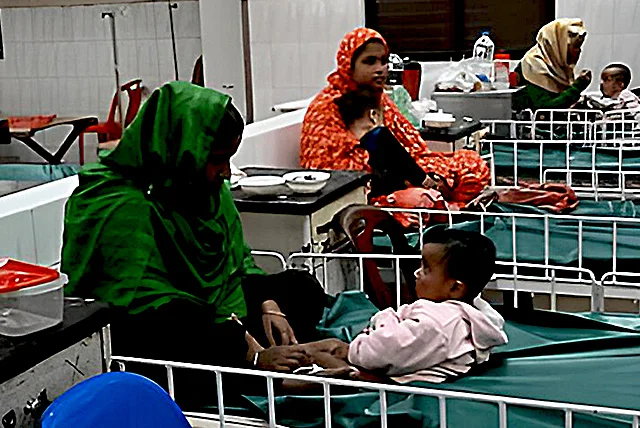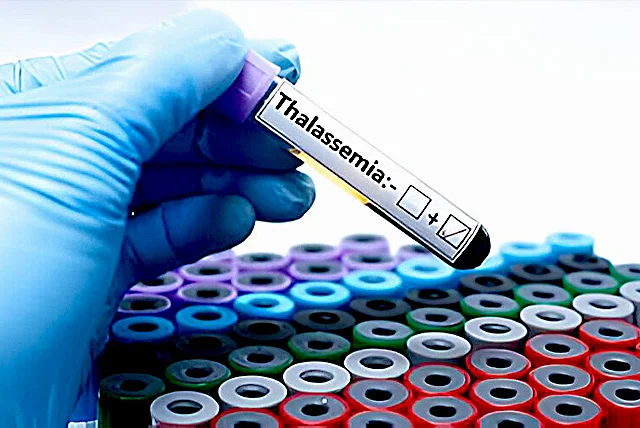Thalassemia, a potentially life-threatening blood disorder, remains a significant health concern in Pakistan.
In this blog post, we’ll explore the reasons behind the rising cases of thalassemia in the country, covering various aspects of this genetic condition.
Introduction
Globally, thalassemia affects populations in the Mediterranean area, Middle East, Transcaucasia, Central Asia, and the Indian subcontinent.
Unfortunately, despite being preventable, thalassemia continues to increase in Pakistan, causing misery to patients and their families. Let’s delve into the factors contributing to this trend.
Lack Of Baseline Data
In Pakistan, there are no credible statistics about any aspect of thalassemia. Basic epidemiological and clinical data about the Pakistani thalassemia population do not exist.
Without this information, it isn’t easy to convince policymakers to allocate resources for controlling and preventing thalassemia.

Burden On The Healthcare System
Thalassemia places a heavy burden on Pakistan’s already overstretched national healthcare system.
The strain on the blood transfusion system affects overall healthcare delivery.
Blood Safety Challenges
Blood safety is crucial due to the high prevalence of transfusion-transmissible infections, such as hepatitis B and C, in Pakistan.
Ensuring safe blood transfusions is essential for managing thalassemia effectively.
Genetic Mutations
Thalassemia results from mutations in a person’s DNA, affecting hemoglobin production.
Alpha-thalassemia and beta-thalassemia are the two main types.
Treatment Challenges
Thalassemia patients require regular blood transfusions and iron chelation therapy. However, affordability remains a significant issue for many patients in Pakistan. Treatment options include:
- Blood Transfusion: Patients may need 6-12 transfusions per year, depending on disease severity.
- Iron Chelation: Removing excess iron from the bloodstream to prevent organ damage.
- Folic Acid Supplementation: Essential for those receiving blood transfusions and chelation therapy.
- Bone Marrow Transplant: Effective in severe cases.
- Surgery: Correcting bone abnormalities when necessary.

A Forward-Looking Approach To Prevent Thalassemia In Pakistan
Thalassemia, a genetic blood disorder, poses a significant health challenge in Pakistan. To reduce its prevalence, we must focus on prevention strategies and raise awareness. Here are key measures:
1-Public Awareness Programs:
- Educate the public about thalassemia, its inheritance pattern, and the importance of carrier screening.
- Promote awareness through schools, colleges, and community events.
2-Public Awareness Programs:
- Target families with a history of thalassemia.
- Conduct premarital and prenatal screenings to identify carriers.
- Provide genetic counseling to affected families.
3-General Population Screening:
- Wider screening programs can identify carriers and prevent affected marriages.
- Collaborate with healthcare providers to offer screening services.
4-Safe Blood Transfusions:
- Ensure safe blood transfusions for thalassemia patients.
- Improve blood screening to prevent viral infections (HBV, HCV, HIV).
5-Iron Chelation Therapy:
- Manage iron overload resulting from regular transfusions.
- Affordable access to iron chelators is crucial.
6-Psychosocial Support:
- Address psychological issues faced by patients and families.
- Provide emotional support and coping mechanisms.
7-National Policy & Strategic Plan:
- Formulate a comprehensive policy to tackle thalassemia.
- Allocate resources for prevention, treatment, and awareness.
- Remember, prevention is our best weapon against thalassemia. Let’s work together to create a healthier future for Pakistan!
Final Thoughts
Addressing thalassemia in Pakistan requires a comprehensive approach, including awareness campaigns, better data collection, and improved access to treatment.
By formulating a national policy and strategic plan, we can work toward reducing the burden of this genetic disorder and ensuring better care for affected individuals.
Remember, prevention and early detection are crucial in the fight against thalassemia. Let’s raise awareness and promote a healthier future for all.
